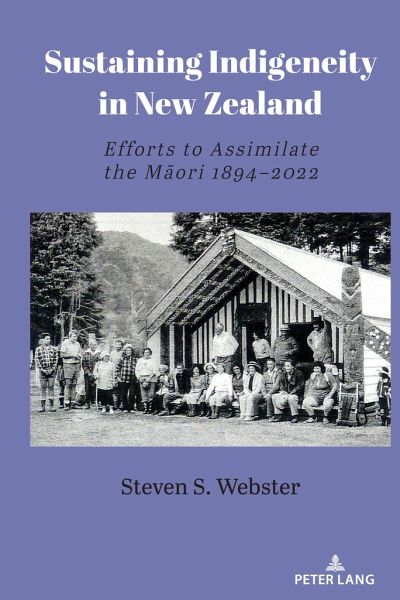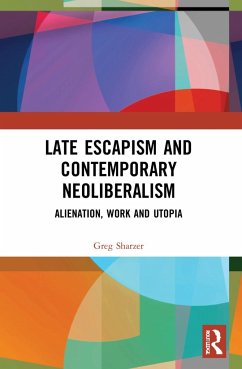
Sustaining Indigeneity in New Zealand
Efforts to Assimilate the M¿ori 1894-2022
Versandkostenfrei!
Versandfertig in 6-10 Tagen
98,95 €
inkl. MwSt.
Weitere Ausgaben:

PAYBACK Punkte
0 °P sammeln!
Sustaining Indigeneity in New Zealand is a revised collection of ten essays by Steven Webster, all written since 1998. Collectively they address national policies and indigeneity movements through a lens of class inequality. Webster describes efforts to assimilate the Maori since the advent of neoliberal policies in the 1980s, with a particular focus on the ways the Maori and their supporters have resisted or subverted these policies.Topics covered include: how an idealised version of Maori culture obscured assimilation of the Maori in the 1850s; the Maori renaissance of the later twentieth ce...
Sustaining Indigeneity in New Zealand is a revised collection of ten essays by Steven Webster, all written since 1998. Collectively they address national policies and indigeneity movements through a lens of class inequality. Webster describes efforts to assimilate the Maori since the advent of neoliberal policies in the 1980s, with a particular focus on the ways the Maori and their supporters have resisted or subverted these policies.
Topics covered include: how an idealised version of Maori culture obscured assimilation of the Maori in the 1850s; the Maori renaissance of the later twentieth century; neoliberal subversion of Maori fishing rights; the struggles of Nai Tuhoe, who won control of their ancestral lands under a benevolent administration, lost it under a predatory successor, but then finally regained it in 2014; and commodity fetishism and the ways commodification is resisted and even turned back against the government by the Maori.
Covering key episodes of Maori indigeneity movements, the book will be of interest to activists and scholars, as well as undergraduate and graduate students of anthropology, history, sociology, political studies, and ethnic studies.
Topics covered include: how an idealised version of Maori culture obscured assimilation of the Maori in the 1850s; the Maori renaissance of the later twentieth century; neoliberal subversion of Maori fishing rights; the struggles of Nai Tuhoe, who won control of their ancestral lands under a benevolent administration, lost it under a predatory successor, but then finally regained it in 2014; and commodity fetishism and the ways commodification is resisted and even turned back against the government by the Maori.
Covering key episodes of Maori indigeneity movements, the book will be of interest to activists and scholars, as well as undergraduate and graduate students of anthropology, history, sociology, political studies, and ethnic studies.














